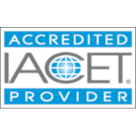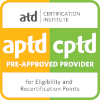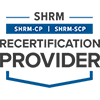Certificate Suite Details
Key Features
- Mobile-friendly
- Audio-enabled
- Badge and credit-awarding
- Real-world case studies
- Fully accessible
- Games & Flashcards
- Expert-supported
- Video content
Certificate Preview
Certificate Description
Courses Included in this Certificate
Course Description
This course provides an overview of the knowledge and skills required for effective nonprofit fundraising for board members. Topics covered include the key fundraising roles and responsibilities of nonprofit boards along with best practices to support various types of fundraising. The role of the development committee, board giving, and board fundraising engagement are also discussed. Tips for networking, asking for support, and maintaining lasting relationships with donors are provided. Learners will also gain an understanding of how to develop the plans and policies that nonprofit board members use to oversee fundraising and will learn about ways to maintain high ethical standards in their organizations.
Course Credits
Course Description
This course will provide you with the knowledge and skills required for effective public communication. We will examine the key roles and responsibilities of nonprofit boards in public communication and describe the ways in which board members can earn and maintain public trust. We will also discuss best practices for creating a communications plan and describe various channels for communication. Finally, we will identify strategies for reaching a diverse audience and explore best practices for handling crisis communications.
Course Credits
Course Description
This course, aimed at nonprofit board members, is designed to help them apply basic strategic-planning skills to their nonprofit organizations. Self-paced and highly interactive, the course covers the six stages of the formal strategic planning process — Preparation; Mission and Vision; Strategic Assessment; Strategy Formulation; Implementation; and Evaluation — as well as approaches for rapidly developing strategies for situations not anticipated by the strategic plan. It includes three case studies that allow learners to apply what they have learned to real-world situations and it allows learners to download materials that they can use to develop strategies for their own organizations.
Course Credits
Course Description
This course will provide you with the knowledge and skills necessary to provide effective leadership oversight in your organization. We will define the different types of board structures and the cycles that every board goes through. Then, we will look at nonprofit governance best practices and the importance of board assessments and succession planning. And finally, we will take a close look at managing conflict within the leadership of your organization, and analyze some of the major ethical issues facing modern nonprofits.
Course Credits
Course Description
This course will provide you with tips and tools to provide proper financial oversight of your nonprofit. It describes the financial roles and responsibilities of board members and provides an overview of the documents found in a nonprofit's financial report. You will learn how to identify and analyze key information in a nonprofit statement of financial position, statement of activities, and statement of cash flow and will get an overview of the process for developing and approving a nonprofit budget.
Course Credits
Course Description
This course, aimed at nonprofit board members, is designed to help them understand and oversee the process for measuring nonprofit progress and performance. Self-paced and highly interactive, the course shows learners how to set appropriate organizational goals and how to use key performance indicators to measure the organization's progress. It details different ways of gathering information and analyzing data to measure desired outcomes, and it shows learners how to monitor and assess the progress of the board itself. It includes three case studies that allow learners to apply what they have learned to real-world situations, and it allows learners to download materials that they can use to measure their own organization's progress.
Course Credits
Course Description
The law not only requires all nonprofit organizations to have a board of directors; it also identifies critical duties that boards must fulfill. As is the case for for-profit boards, non-profit boards have a duty to act in the organization's shareholder's interests; but for a nonprofit, the shareholders are the members of the public that the organization serves. Board members have three primary legal duties: the duty of care, the duty of loyalty, and the duty of obedience. If a nonprofit causes harm by an act or omission, the organization or even individual officers or employees may be liable. This course explores the legal obligations of nonprofit board members, key legal concepts that board members should understand, and the risks and limits of liability.
Course Credits
Notes
This course has an "Ask the Expert" feature, which submits your questions directly to an expert in the field you are studying. Questions are answered as quickly as possible and usually within 24 hours.
As an Accredited Provider, MindEdge offers for its learning events that comply with the Continuing Education and Training Standard.
Learners must achieve an average test score of at least 70% to meet the minimum successful completion requirement and qualify to receive credit. Learners will have three attempts at all graded assessments.




